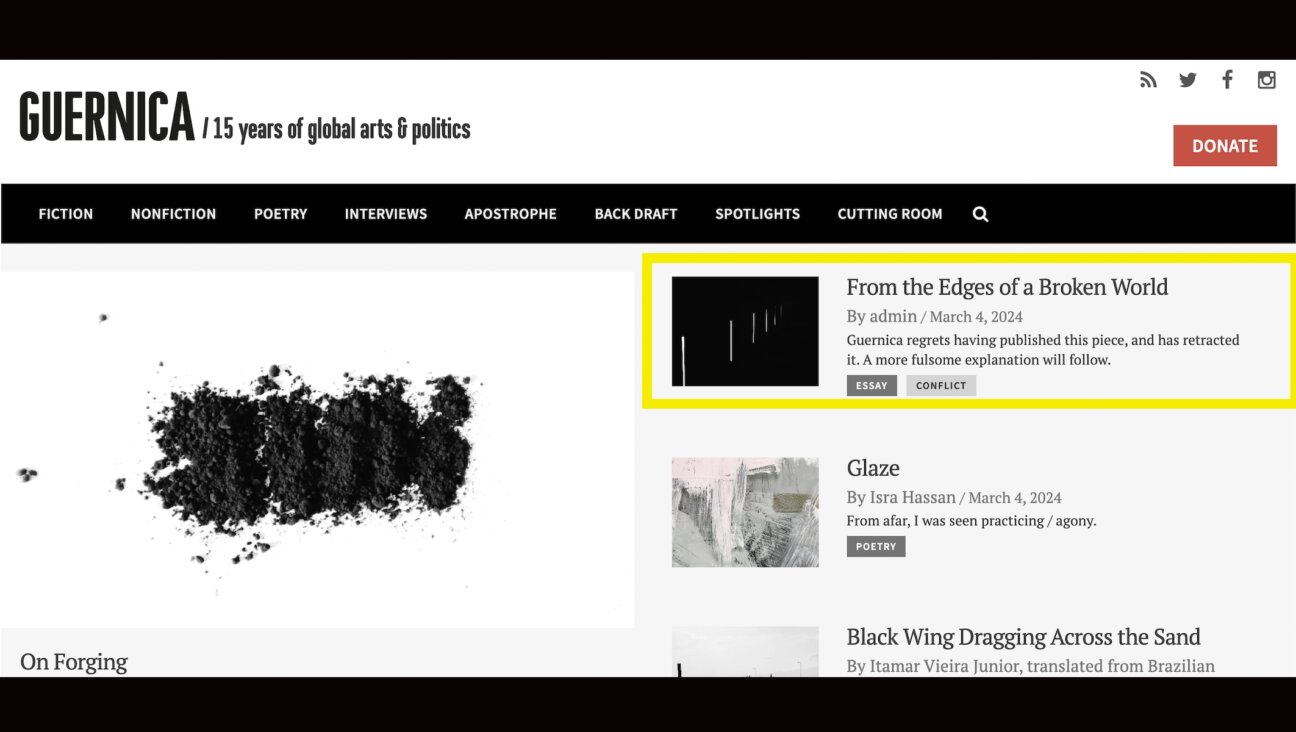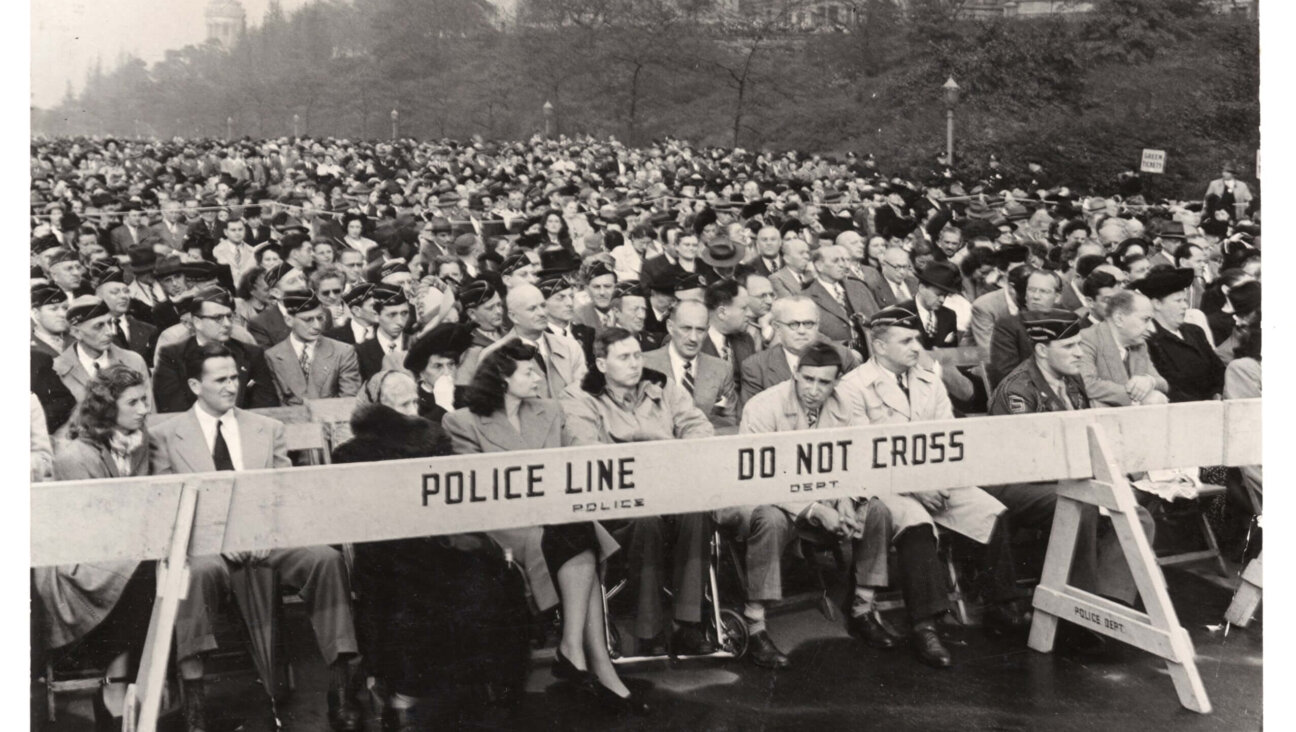Author Blog: Are You a Jewish Writer?

Joshua Henkin is the author of “The World Without You,” “Matrimony,” and “Swimming Across the Hudson.” His blog posts are featured on The Arty Semite courtesy of the Jewish Book Council and My Jewish Learning’s Author Blog Series. For more information on the series, please visit:

First of all, I want to open up my week of blogging by saying how happy I am to be here and have you all be the ones who are helping me shepherd my new novel, “The World Without You,” to publication tomorrow. And if any of you live in New York or are inclined to get yourself there, the launch party for the book is tomorrow night, June 19, at 7 pm, at Bookcourt in Cobble Hill, Brooklyn. Please join me for cheap wine and cheddar cubes and lots of merriment. And if you are one of the few people left on this earth who still believe that Manhattan is the superior borough and you want to skip the wine and the cheddar cubes and focus solely on the merriment, I’m also reading at Barnes and Noble on 82nd Street and Broadway on Thursday evening, June 21, at 7 pm.
Are you a Jewish writer? This is a question that Moment Magazine asked a number of writers recently, and it’s a question I often get asked, and by and large most writers I know who get asked this question end up bridling or being flummoxed or acting generally tongue-tied. I know I do. That’s because I’m not sure what the question means. I’m a Jew, and I’m proud to be one, so on some level by definition I’m a Jewish writer, just as I’m a Jewish father, a Jewish New Yorker, a Jewish eldest child, a Jewish basketball fan, and a Jewish watcher of The Daily Show.
But I’m not generally asked whether I’m a Jewish eldest child or a Jewish watcher of The Daily Show, and I think therein lies the rub. Because when a writer gets asked the Jewish writer question, something more seems to be going on, something having to do with the writer’s own relationship to Judaism or whether the book he has written qualifies as Jewish based on the number of Yiddish phrases contained therein or the amount of whitefish consumed by his characters. And this is where things start to feel reductive.
To take my own work as a case in point, my first novel, “Swimming across the Hudson,” had lots of Jewish subject matter; my second novel, “Matrimony,” had very little Jewish subject matter; and now “The World Without You” has lots of Jewish subject matter again. Does that mean I was more of a Jewish writer for the first novel, less of a Jewish writer for the second novel, and more of a Jewish writer again for the third novel? That’s just silly. I’d also add that these kinds of questions serve to ghettoize a writer when good fiction is good fiction and should reach as broad an audience as possible. No one asked Cheever whether he considered himself a male writer. No one asked Updike whether he considered himself a WASP writer.
And now, in good Jewish tradition, I’m going to contradict myself. I’m very interested in time in fiction, and I think this interest comes in large part from my own relationship to Judaism. My last novel, “Matrimony,” took place over the course of 20 years, and when I started to write “The World Without You” I wanted to write a book with a very different relationship to time, so I set the book in compressed time, over the course of 72 hours.
Might I have been interested in doing this if I weren’t Jewish? Of course. But I do know that my own interest in time is directly connected to what time was like for me as a child — Shabbat starts at 6:32 this week, it ends at 7:35, there are two Adars this year so Passover is later, that kind of thing. The story goes that when I was about five and we were moving the clock forward for Daylight Savings Time, I said to my parents, “Do non-Jews switch their clocks forward, too?”
Joshua Henkin’s new novel, “The World Without You,” will be available tomorrow. He is the author of the novels “Matrimony,” a New York Times Notable Book, and “Swimming Across the Hudson,” a Los Angeles Times Notable Book. His short stories have been published widely, cited for distinction in Best American Short Stories, and broadcast on NPR’s “Selected Shorts.” He lives in Brooklyn and directs the MFA program in Fiction Writing at Brooklyn College.
The Jewish Book Council is a not-for-profit organization devoted to the reading, writing and publishing of Jewish literature. For more Jewish literary blog posts, reviews of Jewish books and book club resources, and to learn about awards and conferences, please visit www.jewishbookcouncil.org.
MyJewishLearning.com is the leading transdenominational website of Jewish information and education. Visit My Jewish Learning for thousands of articles on Judaism, Jewish holidays, Jewish history and more.

I hope you appreciated this article. Before you go, I’d like to ask you to please support the Forward’s award-winning journalism this Passover.
In this age of misinformation, our work is needed like never before. We report on the news that matters most to American Jews, driven by truth, not ideology.
At a time when newsrooms are closing or cutting back, the Forward has removed its paywall. That means for the first time in our 126-year history, Forward journalism is free to everyone, everywhere. With an ongoing war, rising antisemitism, and a flood of disinformation that may affect the upcoming election, we believe that free and open access to Jewish journalism is imperative.
Readers like you make it all possible. Right now, we’re in the middle of our Passover Pledge Drive and we need 500 people to step up and make a gift to sustain our trustworthy, independent journalism.
Make a gift of any size and become a Forward member today. You’ll support our mission to tell the American Jewish story fully and fairly.
— Rachel Fishman Feddersen, Publisher and CEO
Join our mission to tell the Jewish story fully and fairly.
Our Goal: 500 gifts during our Passover Pledge Drive!
























